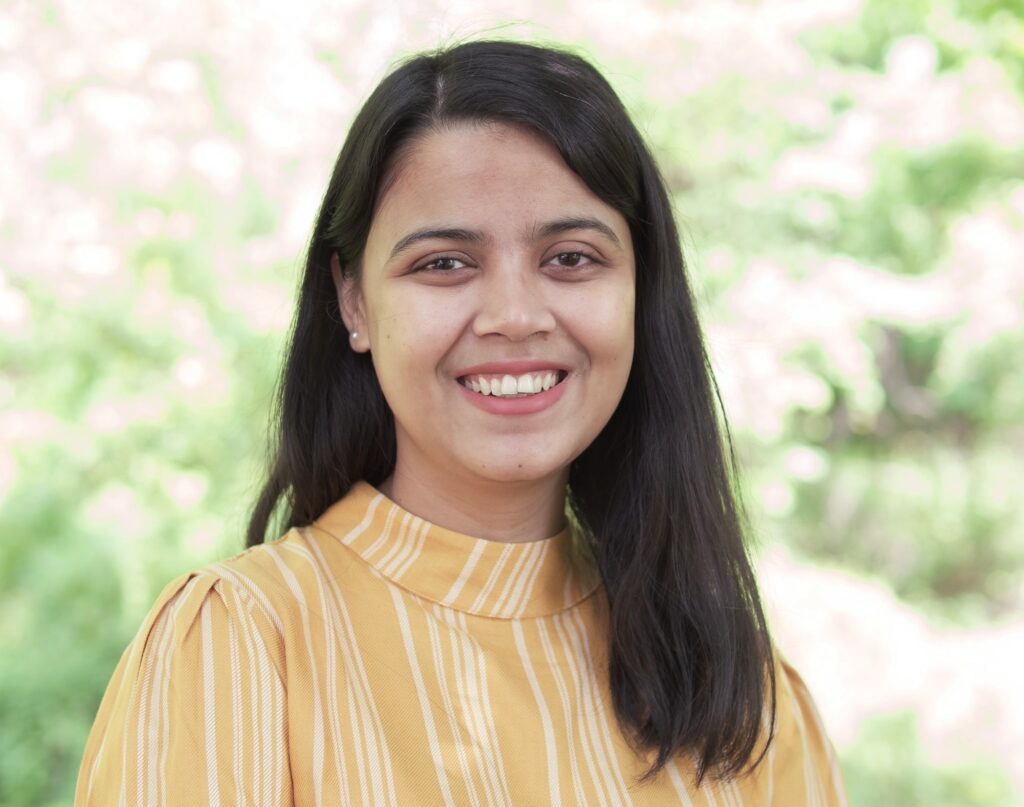
“An assistantship is a time to learn and develop skills, and sometimes the best place to do that is in a new environment.” Spencer Hayes, one of the Graduate Assistants interviewed in this blog reflects on her work experience at the Center for Career Development.
While it seems common for doctoral students to work within their academic department as a Teaching Assistant (TA) or Research Assistant (RA) for their Graduate Assistantship (GA), there are a small number of individuals who choose to work in non-academic departments where they experience a different work environment and develop new skillsets. As one of the non-academic GAs myself, I am always grateful for the opportunities of learning new knowledge and skills while working with a team of higher education professionals who I learn a lot from.
In a series of blogs starting from this one, I will interview doctoral students in a non-academic GA position, who are going to share what they learn and gain from working outside of their department, and how their experience helps them rethink their future career and shapes their career goals.
The first episode of this blog series – Enhancing Career Readiness: Doctoral Students at Work features my fellow co-workers, Treena Goswami and Spencer Hayes, Graduate Assistants at the Center for Career Development.

Goswami is a Ph.D. candidate in Economics. She co-teaches the Senior Year Experience Course and serves as a Teaching Assistant on internships and co-op courses offered by the Career Center, where she also mentors one of the Center’s Career Interns.

Hayes is a first-year Ph.D. student in Political Science. She works with the Center’s programming team, and her primary work is in developing and delivering career-related presentations on a variety of topics. She also helped organize course content in the University’s First Year Experience courses.
Applying academic training to their roles
“I enjoy seeing how my education in political science and human rights can make a positive impact on the student body.”
— Spencer Hayes
While asked about how they relate their doctoral training to their jobs, they both find a large overlap between the two. For example, the time management skills they came in with have helped them navigate different work tasks with tight schedules and deadlines.
A Ph.D. candidate in economics, Goswami said she was glad to be able to apply her teaching skills from her academic program to her current tasks. Hayes, with an academic background in political science and human rights, is able to transfer that into her role in the Center’s Diversity, Equity, and Inclusion Committee. “As a committee, we discuss a number of topics related to inclusion on campus,” Hayes says, “I enjoy seeing how my education in that political science and human rights can make a positive impact on the student body.”
Building competencies
“This job introduces me to a professional environment, and I know how it operates, which differs from the academic world I came from.”
— Treena Goswami
There are eight types of skills and competencies that employers value and seek in job candidates. These are identified by the National Association of Colleges & Employers (NACE) – career & self Development, communication, critical thinking, equity & inclusion, leadership, professionalism, teamwork, and technology. While Hayes and Goswami think they are confident with critical thinking, equity & inclusion, leadership, and technology when they first got on board, they also see their skills in communication and teamwork greatly polished and improved.
“In my previous positions, I worked alone most of the time and at the Center for Career Development, you not only work with your own team but also individuals in different areas of the department,” says Hayes. Goswami echoes that, “I have learned how to navigate communications with my co-workers in a professional workplace.” She added, “This job introduces me to a professional environment, and I know how it operates, which differs from the academic world I came from.”
Shaping diverse career paths
“I never thought I could work beyond academia, and now I know I have a broader range of career options.”
— Treena Goswami
Although inspired to work at the Career Center in different ways, Hayes and Goswami believe their roles equip them with new skills and prepare them for diverse career possibilities after their graduation. With an interest in the administrative side of higher education, Hayes hopes to take this opportunity of working at the Center for skill development and have a break from her academic work. In need of funding for her final year, Goswami sought this new opportunity that helps her see more flexible career choices as her potential career paths, “I never thought I could work beyond academia, and now I know I have a broader range of career options, such as career consultation in higher ed.”
“I strongly believe that, if possible, we [doctoral students] should think out of the box when it comes to looking for any type of assistantship,” Hayes concluded, “An assistantship is a time to learn and develop skills, and sometimes the best place to do that is in a new environment.”
Stay tuned for more episodes on Enhancing Career Readiness: Doctoral Students at Work .
Want to share your stories about jobs/internships/volunteering/services beyond your academic department? Please contact dzx19001work1@uconn.edu .
